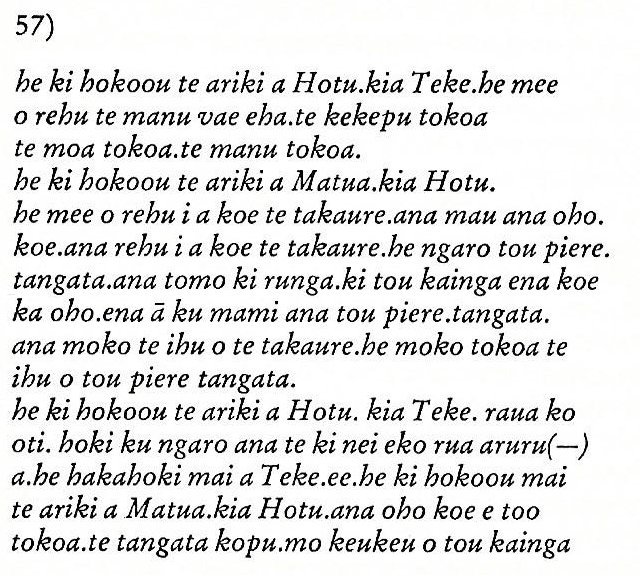
|
he tuu ki te tau i a
Hotu.he ki a Matua |
Hotu's time
came [he tuu ki te tau i a Hotu], and Matua
spoke to Hotu, 'Put the canoe (miro) into the
water and sail to Te Pito O Te Kainga. For five
months Ira has been searching for the land. Ira went
away and did not return [hoki mai nei a Ira].' |
|
kia Hotu.ka
hoa te miro ki
haho ki te tai ka |
|
oho.ki te pito o te
kainga.karima.mara(-) |
|
ma o Ira.ki tikea ana te kainga.e Ira.i o(-) |
|
ho era.e tae. hoki mai
nei a Ira. |
| Hoa.
1. Master, owner; tagata hoa papaku,
owner or relative of a dead; hoa manu, 'bird
master', that is, he who received the first egg at
the annual festivals in Orongo; he to'o
mai e te hoa manu i te mamari ki toona rima, he
ma'u, he hoko, the 'bird master' receives the
egg in his hand and carries it, dancing. 2.Friend,
companion: e ga hoa ê! 3. To cast
away, to throw away, to abandon,
perhaps also to expel. 4. To confess a
sin; he hoa i te ta'u: term used of a
category of rongorongo boards (see ta'u).
Vanaga. 1. Friend; repa hoa, friend
(male), comrade, companion, fellow; to confide;
repa hoa titika, faithful friend; garu hoa,
friend (either sex); uha hoa, friend
(female); hoa kona, native T. 2. To abandon,
to debark, to cast, to launch, to anchor, to let go,
to give up, to reject, to repudiate, to suppress, to
cut off, to jerk out, to proscribe, to reprove;
hoahoa, to upset, to destroy. Churchill.
Haho. Outside. Vanaga. Hahoa (ha
causative, hoa) to cut, to wound, to hurt. PS
Mgv.: tahoa, to make papyrus by beating. Sa.:
foa, to chip, to break. To.: foa, to
crack, to make an opening. Fu.: foa, to dig,
the rent in a mat. Underlying the Nuclear Polynesian
significations the primal sense seems to be that of
a hole. The Rapanui, a causative, is a clear
derivative in the cutting sense; wound and hurt are
secondary withing this language. The Mangarevan
composite means 'to beat until holes appear', which
is a distinctive character of the beaten bast of the
paper mulberry in the condition in which it is ready
for employment in making tapa. Churchill.
|
|
E:56 → Alcyone
... another Alcyone, daughter
of Pleione, 'Queen of Sailing', by the oak-hero
Atlas, was the mystical leader of the seven Pleiads.
The heliacal rising of the Pleiads in May marked the
beginning of the navigational year; their setting
marked its end when (as Pliny notices in a passage
about the halcyon) a remarkably cold North wind
blows ... |
|
he ki hokoou mai a
Matua kia Hotu |
Then Matua
said to Hotu, 'Launch the canoe [ka hoa te miro],
gather [ka too toou] the people, and sail on
board the canoe [ka oho.irunga i te miro] to
Te Pito O Te Kainga.
Sail on [ka oho] and let children be born
[ka hakatama toou] by the many in Te Pito O
Te Kainga (i.e., the number of your subjects will
increase in the new homeland).
Not one thing [he mee. o toe a etahi]
shall remain behind (i.e., everything that is needed
will be taken along) when you leave [ana oho koe]!' |
|
ka hoa te miro.ka too
toou o te tangata |
|
ka oho.irunga i te
miro.ki te pito o te |
|
kainga.ka oho.ka
hakatama toou o te
piere |
|
tangata.i te pito o te
kainga.he mee. o toe a |
|
etahi.ana oho koe. |
|
Tama. 1.
Shoot (of plant), tama miro, tree shoot;
tama tôa, shoot of sugarcane. 2. Poles, sticks,
rods of a frame. 3. Sun rays. 4. Group of people
travelling in formation. 5. To listen attentively
(with ear, tariga, as subject, e.g. he
tama te tariga); e-tama rivariva tokorua
tariga ki taaku kî, listen carefully to my
words. Tamahahine, female. Tamahine (=
tamahahine), female, when speaking of
chickens: moa tamahine, hen. Tamâroa,
male. Vanaga. 1. Child. P Pau.: tama riki,
child. Mgv.: tama, son, daughter, applied at
any age. Mq.: tama, son, child, young of
animals. Ta.: tama, child. Tamaahine (tama
1 - ahine), daughter, female. Tamaiti,
child P Mq.: temeiti, temeii, young
person. Ta.: tamaiti, child. Tamaroa,
boy, male. P Mgv.: tamaroa, boy, man, male.
Mq.: tamaóa, boy. Ta.: tamaroa, id. 2.
To align. Churchill. In the Polynesian this [tama
na, father in the Efaté language] is
distinguished from táma child by the accent
tamā or by the
addition of a final syllable which automatically
secures the same incidence of the accent,
tamái,
tamana ...
Churchill 2.
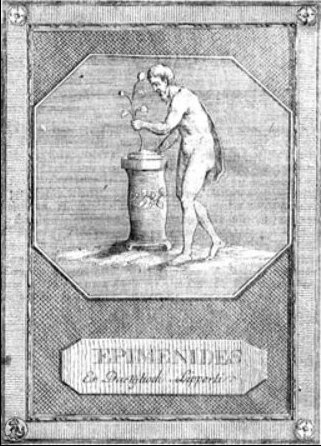
Kai toe kai tohe etahi, omitted nothing
whatsoever (E:13). |
|
he ki a Hotu.ki toona
titiro.kia Teke.kia |
Hotu said
to his assistants [ki toona titiro] Teke and
Oti, 'Go and take banana shoots, taro seedlings,
sections of sugarcane to be planted, yam roots,
sweet potatoes with leaves (? rau kumaru),
hauhau trees, paper mulberry trees, sandalwood
trees, toromiro trees, ferns (riku),
rushes, yellow roots, tavari plants, moss (para),
and ngaoho plats. Take all of these things [anakenake
te mee] (i.e., all varieties of plants) and also
grass [te mauku tokoa]!'
|
|
oti.ka oho.korua ka too
mai i te huri maika |
|
i te uru taro.i
tepupura toa.i te uhi.i te rau. |
|
kumara.i te hauhau.i te
mahute. i te naunau. |
|
i te toromiro. i te
riku.i te ngaatu. i te pua.i te |
|
tavari.i te para. i te
ngaoho. anakeanake te me(-) |
|
e.ana too mai koe.te
mauku tokoa. |
|
Tiro. Mgv.:
Spots on linen. Ta.: tiro, to mark. Mq.:
tiotioa, blotched, covered with white spots.
Titiro, to admire. P Ma.: tiro, to gaze
at. Churchill. Vi.: tiro, siro,
sisiro, to descend, to go down a steep or hill.
Churchill 2.
Pua mouku, grass. Churchill.
Uku koku is
the name of a dark type of grass, which in earlier
times was used to make hats. Barthel 2.
 |
| Sa.:
malae, the town green. Nukuoro: malae, a
cleared space, an open place, a plantation. To.:
malae, a gree, a grass plot ... Ha.: malae,
smooth (as a plain) ... Ma.: marae, an
inclosed place in front of a house. Ta.: marae,
the sacred place of worship ... Vi.: mara, a
burying place ... In note 261 I have advanced the
opinion that malae is in form a conditional
derivative of lae. This holds of the
signification found in Nuclear Polynesia. The
secondary sense which the Tongafiti carried to
eastern Polynesia has obscured the lae
element; but the sacrosanct content of the marae
in the four-godded theology of eastern Polynesia is
after all but a logical outgrowth of the Nuclear
Polynesian malae as the civic center of
social life where god is sole, surpreme - and
Lucretian ... Churchill 2. ...
What happens after (or happened, or will happen
sometime, for this myth is written in the future
tense), is told in the Völuspa, but it is also
amplified in Snorri's Gylfaginning (53), a
tale of a strange encounter of King Gylfi with the
Aesir themselves, disguised as men, who do not
reveal their identity but are willing to answer
questions: 'What happens when the whole world has
burned up, the gods are dead, and all of mankind is
gone? You have said earlier, that each human being
would go on living in this or that world.' So it is,
goes the answer, there are several worlds for the
good and the bad. Then Gylfi asks: 'Shall any gods
be alive, and shall there be something of earth and
heaven?' And the answer is: 'The earth rises up from
the sea again, and is green and beautiful and things
grow without sowing. Vidar and Vali are alive, for
neither the sea nor the flames of Surt have hurt
them and they dwell on the Eddyfield, where once
stood Asgard. There come also the sons of Thor, Modi
and Magni, and bring along his hammer. There come
also Balder and Hoder from the other world. All sit
down and converse together. They rehearse their
runes and talk of events of old days. Then they find
in the grass the golden tablets that the Aesir once
played with ...

13 * 13 - 4 = 165. And 165 -
13 (the white pieces above) = 152 (= 8 * 19) - as in
Te Maro 1 when the Sun reached Castor and the
Explorers reached the new land.
|
1 |
Banana
shoots |
te huri maika |
|
2 |
Taro
seedlings |
te uru taro |
|
3 |
Sections of Sugarcane |
tepupura toa |
|
4 |
Yam
roots |
te uhi |
|
5 |
Sweet
potatoes |
te rau kumara |
|
6 |
Hauhau
trees |
te hauhau |
|
7 |
Paper
Mulberry trees |
te mahute |
|
8 |
Sandalwood trees |
te naunau |
|
9 |
Toromiro trees |
te toromiro |
|
10 |
Ferns |
te riku |
|
11 |
Rushes |
te ngaatu |
|
12 |
Yellow
roots |
te pua |
|
13 |
Tavari
plants |
te tavari |
|
14 |
Moss |
te para |
|
15 |
Nga Oho
plants |
te ngaoho |
|
16 |
Grass |
te mauku tokoa |
|
|
E:57
... The original story was by
Diogenes Laertius, an Epicurean philosopher circa
early half third century, in his book On the
Lives, Opinions, and Sayings of Famous Philosophers.
The story is in Chapter ten in his section on the
Seven Sages, who were the precursors to the first
philosophers. The sage was Epimenides. Apparently
Epimenides went to sleep in a cave for fifty-seven
years. But unfortunately, 'he became old in as many
days as he had slept years'. Although according to
the different sources that Diogenes relates,
Epimenides lived to be one hundred and fifty-seven
years, two hundred and ninety-nine years, or one
hundred and fifty-four years. A similar story is
told of the Seven Sleepers of Ephesus, Christian
saints who fall asleep in a cave while avoiding
Roman persecution, and awake more than a century
later to find that Christianity has become the
religion of the Empire ...
 |
|
he ki hokoou te ariki a
Hotu.kia Teke.he mee |
Then King
Hotu said to Teke, 'Don't forget the four-legged
animals (manu vae eha - 'birds with four
legs'), also [tokoa] pigs (? kekepu),
chickens, and birds.' |
|
o rehu te manu vae
eha.te kekepu tokoa |
|
te moa tokoa.te manu
tokoa. |
|
Rehu. 1.
Dust. P Mgv.: rehu, a cinder, coal, ashes.
Mq.: éhuahi, ashes. Ta.: rehu, ashes,
soot, any powder. 2. To omit, to forget, to faint.
Rehurehu, to omit, omission, lost to sight.
Hakarehu, to surprise. Rehua,
unintelligible. Churchill. Mgv.: rehurehu,
from early dawn to mid morning. Ta.: rehurehu,
twilight. Mq.: ehuehu, id. Churchill. Mq.:
ehu, to fall in bits. Ma.: rehu, to split
off in chips. Ehua, Ehuo, a large
constellation. Ma.: rehua, a star or planet,
probably Jupiter. Churchill. Keke. To go
down after reached its zenith (of the sun):
he-keke te raá. Kekeé, to be lying on the
ground, partly above it, to stick out: ma'ea ke'e
ke'e, stones sticking out of the ground.
Kékekéke, to rustle, to creak:
ku-kekekeke-áte hare i te to kerau, the house
creaked in the wind. Kekepu, animal mentioned
in ancient traditions, the flesh of which was eaten
in Hiva (also kepukepu). Kekeri,
to feel an indisposition of the stomach or the
bowels: he-kekeri te manava. Kekeú,
shoulder (according to others, shoulder-blade); used
also for 'arm'. Vanaga. Keke (ke),
other, distinct, special; hikohiko keke,
hide-and-seek; kekee (ke), irregular,
uneven, rough; ke avai, a superlative
expression; hinihini ke avai, ancient; ika
ke avai, abuse; kori ke avai, abuse;
maori ke avai, skilful, handy; pipiro ke avai,
disgusting odor; tupu ke avai, of swift
growth; ua ke avai, a shower of rain.
Keekee; niho keekee, long protruding
teeth. Churchill. Pau.: keke, armpit. Mgv.:
keke, id. Ta.: ee, id. Mq.: kaáke,
id. Ma.: keke, id. Churchill. Mgv.: keke,
to praise, to felicitate. Sa.: 'e'e, to pay
respect to. Ha.: ee, caressing, kind.
Kekei, sharp, harsh, of the voice. To.: keke,
to bleat. Ha.: eeina, to creak, to grate.
Churchill.
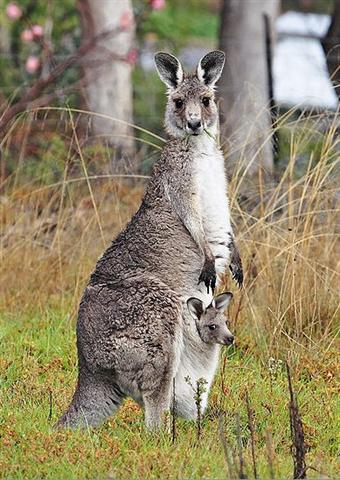
"At the time of the immigration, Hotu Matua brought
with him an animal that had short front legs and
fat, high buttocks ..." (The Eighth Land, p
141.)
... The etymology of kangaroo is not known,
which allows me to imagine a connection with
Tagaroa (Kanaloa). The Polynesians surely
visited Australia on several occasions and the
striking pocket (little sack) on the front side of
the man-sized kangaroos (standing on 2 legs just
like men), must have stayed in their memories.
Nothing on land can be more illustrative of how life
must have begun inside a dark sack (taga) ... |
|
he ki hokoou te ariki a
Matua.kia Hotu. |
Then King
Matua said to Hotu, 'You must not forget [he mee
o rehu] the flies [te takaure] when you
take along (all the things that are necessary) and
sail off. If you forget the flies [ana rehu i a
koe te takaure], the multitude (piere) of
the people will disappear [he ngaro tou piere]. When you reach the land [ana tomo ki runga.ki
tou kainga] to which you are travelling [ena
koe ka oho], it will be over quickly (?) for the
multitude of the people.
When the flies die [ana moko te ihu o te
takaure], the human population dies too [he
moko tokoa te ihu o tou piere tangata].' |
|
he mee o rehu i a koe
te takaure.ana mau ana oho. |
|
koe.ana rehu i a koe te
takaure.he ngaro tou piere. |
|
tangata.ana tomo ki
runga.ki tou kainga ena koe |
|
ka oho. ena ā ku mami
ana tou piere.tangata. |
|
ana moko
te ihu o te
takaure.he moko tokoa te |
|
ihu o tou piere
tangata. |
| I te
ahiahi-ata he garo te raá ki raro ki te vai kava.
In the evening the sun disappears under the sea.
Ihu. 1. Nose; ihu more, snub nose,
snub-nosed person. 2. Ihuihu cape, reef;
ihuihu - many reefs, dangerous for boats. 3.
Ihu moko, to die out (a family of which remains
only one male without sons); koro hakamao te mate
o te mahigo, he-toe e-tahi tagata nó, ina aana
hakaara, koîa te me'e e-kî-nei: ku-moko-á te ihu o
te mahigo, when the members of family have died
and there remains only one man who has no offspring,
we say: ku-moko-á te ihu o te mahigo. To
disappear (of a tradition, a custom), me'e ihu
moko o te tagata o te kaiga nei, he êi, the
êi is a custom no longer in use among the people
of this island. 4. Eldest child; first-born; term
used alone or in conjunction with atariki.
Vanaga. 1. Nose, snout, cape T (iju G). Po
ihuihu, prow of a canoe. P Pau.: ihu,
nose. Mgv.: ihu, nose; mataihu, cape,
promontory. Mq., Ta.: ihu, nose, beak,
bowsprit. Ihupagaha, ihupiro, to rap
on the nose, to snuffle. 2. Mgv.: One who dives
deep. Ta.: ihu, to dive. Churchill. Sa.:
isu, nose, snout, bill. Fu., Fakaafo, Aniwa,
Manahiki: isu, the nose. Nuguria; kaisu,
id. Fotuna: eisu, id. Moiki: ishu, id.
To., Niuē, Uvea, Ma.,
Ta., Ha., Mq., Mgv., Pau., Rapanui, Tongareva,
Nukuoro: ihu,
id. Rarotonga: putaiu,
id. Vaté: tus,
id. Viti: uthu,
nose. Rotumā: isu,
id. ... usu
and ngusu
... serve as transition forms, usu
pointing to
isu the nose in
Polynesia and ngusu
to ngutu
the mouth, which is very near, nearer yet when we
bear in mind that ngutu
the mouth is snout as well and that isu
the nose is snout too ... Churchill 2.
... From a religious point of
view, the high regard for flies, whose increase or
reduction causes a similar increase or reduction in
the size of the human population, is interesting,
even more so because swarms of flies are often a
real nuisance on Easter Island, something most
visitors have commented on in vivid language. The
explanation seems to be that there is a parallel
relationship between flies and human souls, in this
case, the souls of the unborn. There is a widespread
belief throughout Polynesia that insects are the
embodiment of numinous beings, such as gods or the
spirits of the dead, and this concept extends into
Southeast Asia, where insects are seen as the
embodiment of the soul
...
... Men's spirits were thought
to dwell in the Milky Way between incarnations.
This conception has been
handed down as an Orphic and Pythagorean tradition
fitting into the frame of the migration of the soul.
Macrobius, who has provided the broadest report on
the matter, has it that souls ascend by way of
Capricorn, and then, in order to be reborn, descend
again through the 'Gate of Cancer' ...
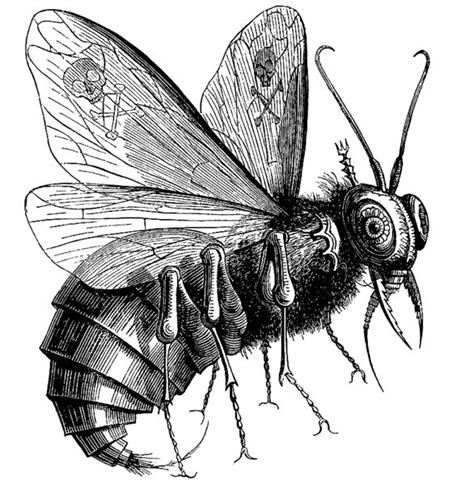 |
|
he ki hokoou te ariki a
Hotu.kia Teke. raua ko |
Then King
Hotu said to Teke and Oti [raua ko oti], 'You
two will forget [hoki ku ngaro] what I have
said [ana te ki] (i.e., you will keep it a
secret)?' Teke answered [he hakahoki],
'Yes! [ee]' |
|
oti. hoki ku ngaro ana
te ki nei eko rua aruru(-) |
|
a.he hakahoki mai a
Teke.ee.he ki hokoou mai |
|
te ariki a Matua.kia
Hotu.ana oho koe e too |
Again King
Matua spoke to Hotu, 'When you leave you shall take
the prisoners (tangata kopu) along to work
the land!' |
|
tokoa.te tangata
kopu.mo keukeu o tou kainga |
| Keu.
Communal enterprise, work done in common: mo
te keu. for the work done in common (for
instance: collecting food mo te keu, to give
to the helpers). Keukeu: 1. To work; to work
long and steadily: he-keukeu te aga; tagata
keukeu henua, farmer. 2. To get ready, e.g. for
a trip: ka-keukeu koe, ki oho tâtou. get
ready, we are going; ka-keukeu ki turu ki tai, ki
hî, get ready for going down to the sea, to
fish. 3. To approach (of rain): he-keukeu te ûa.
Vanaga. |
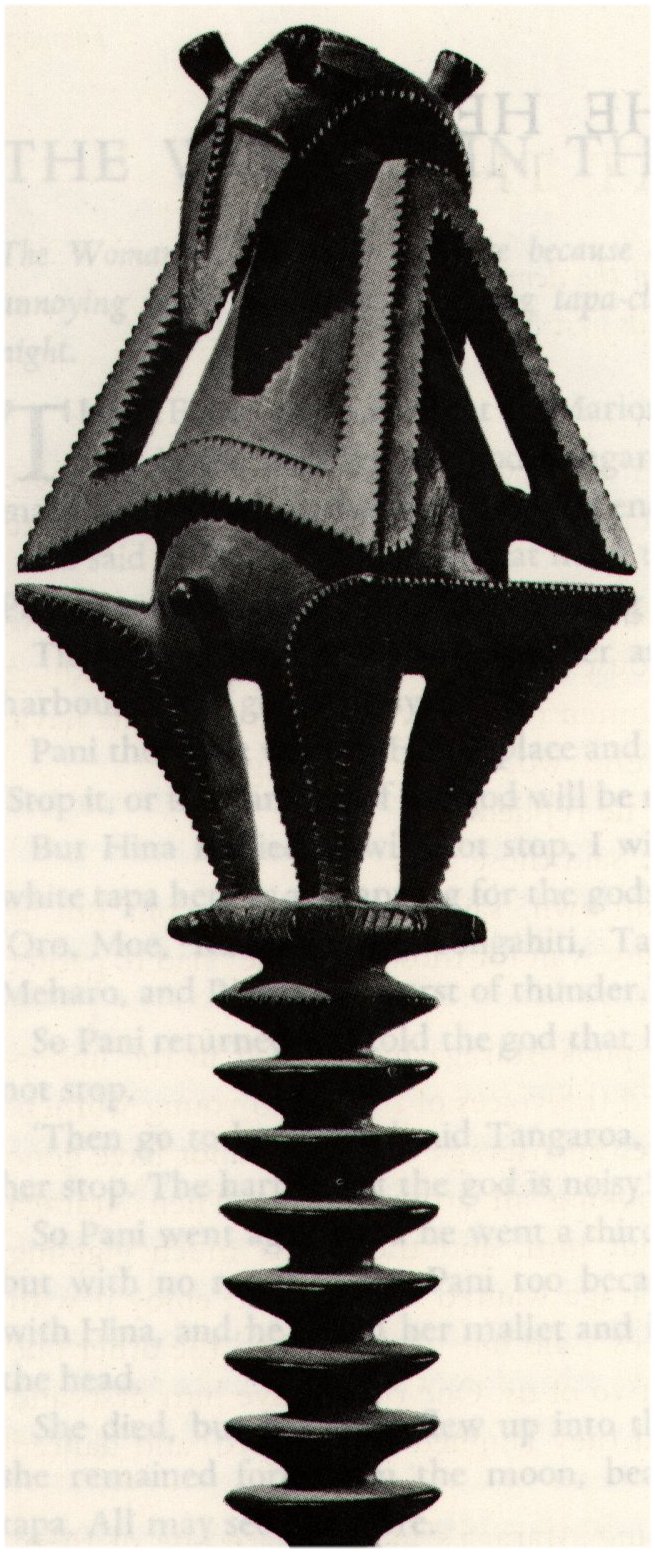
|